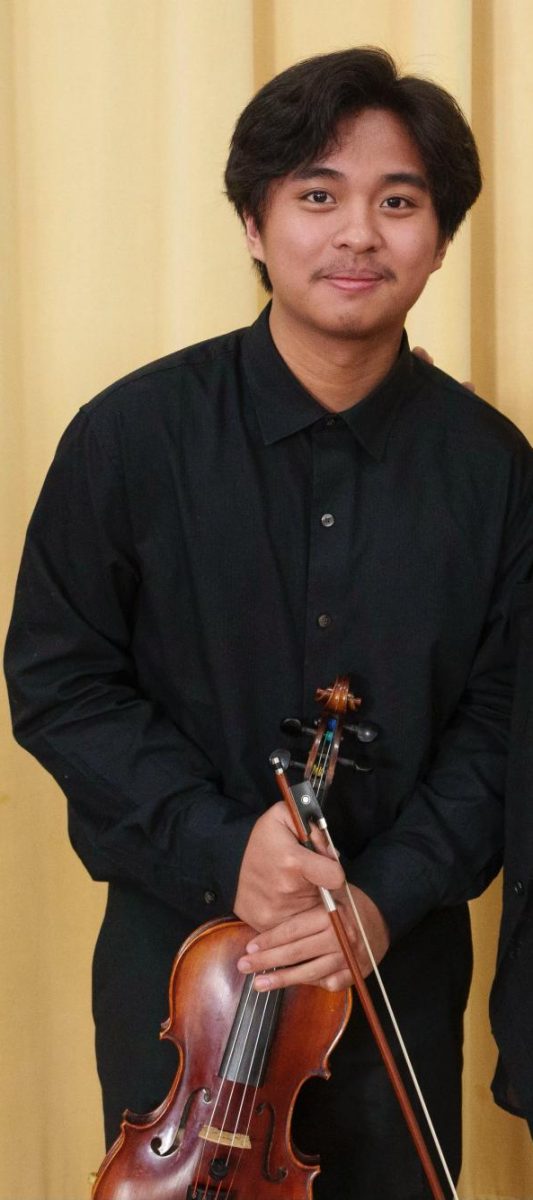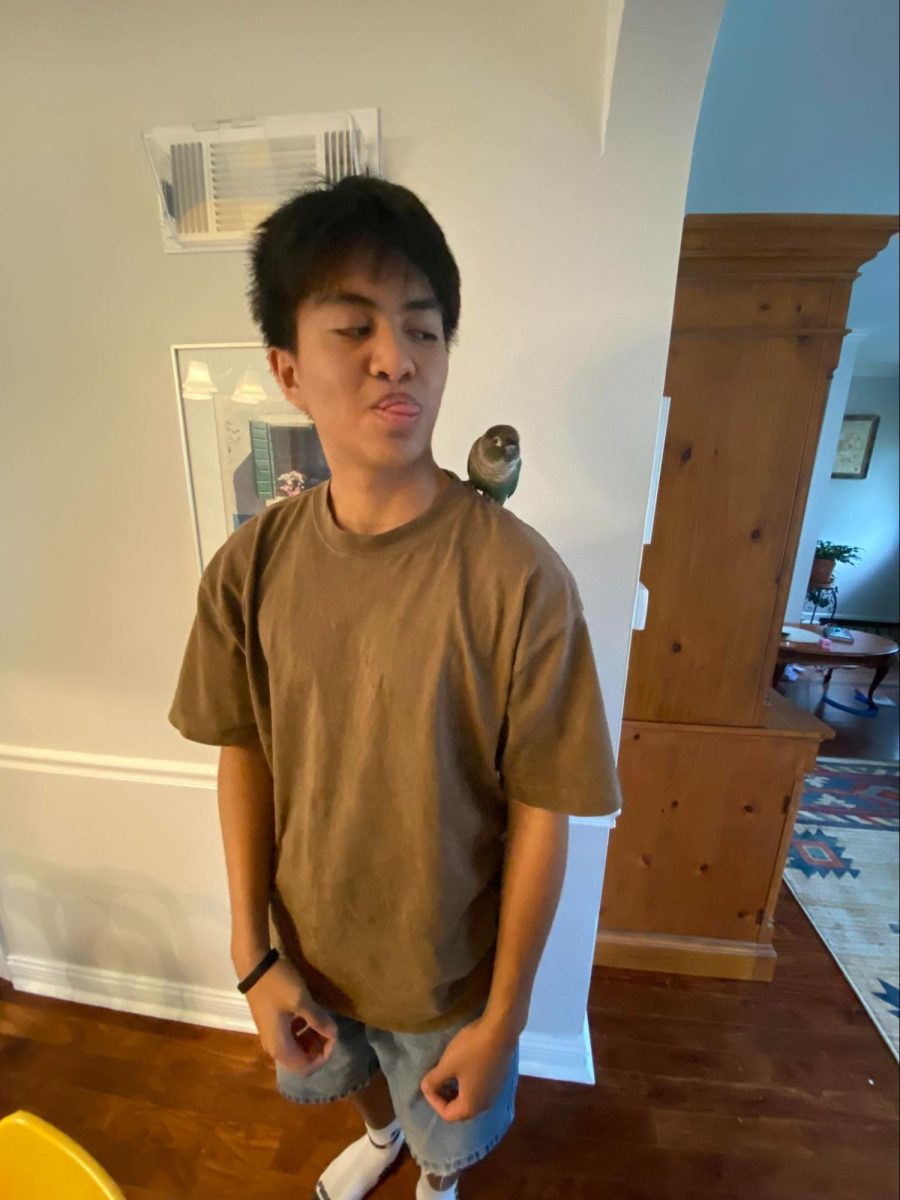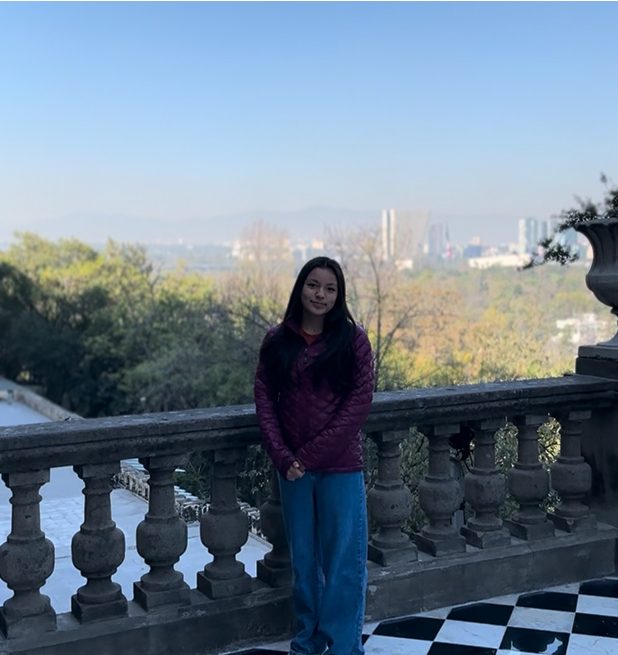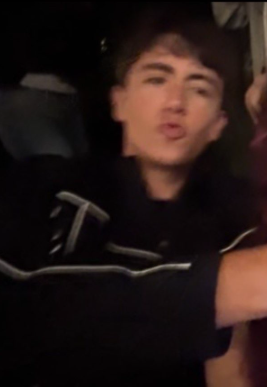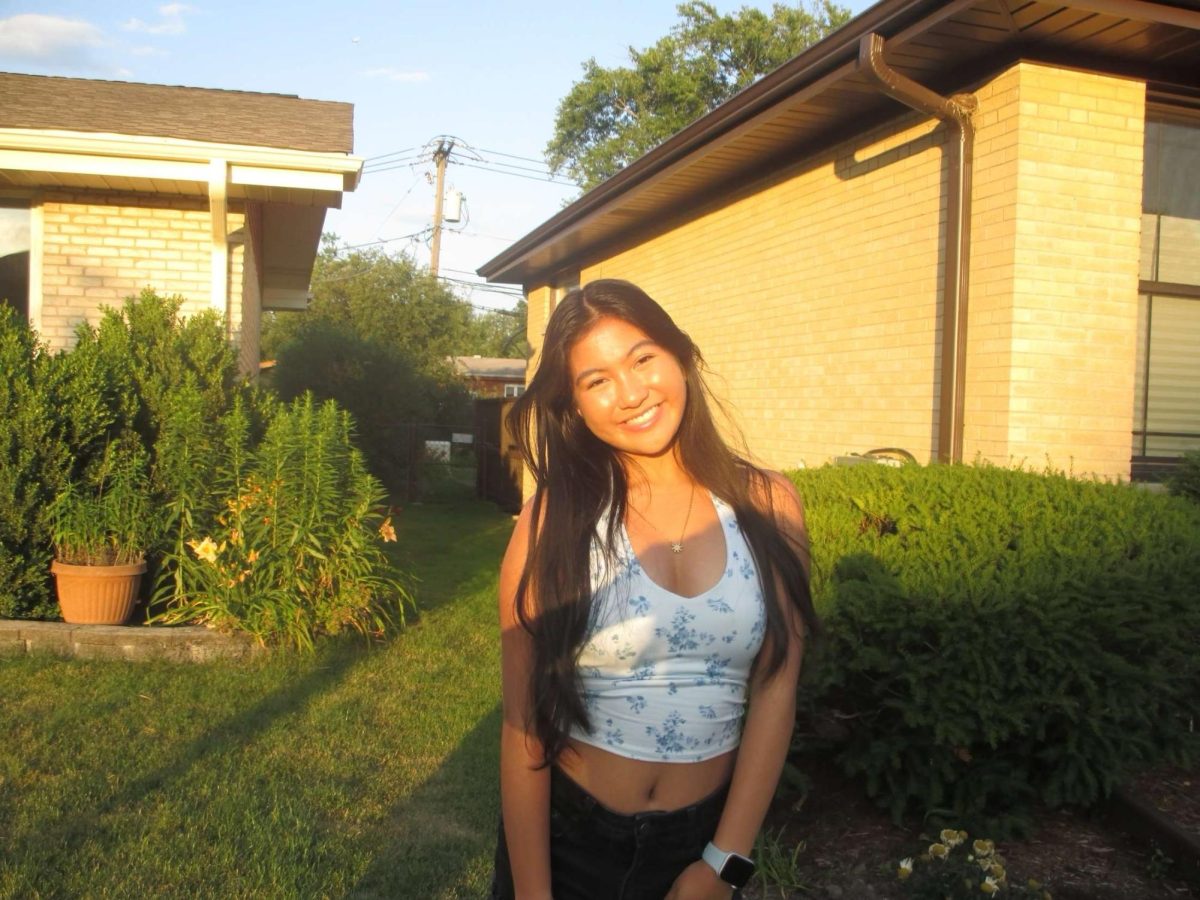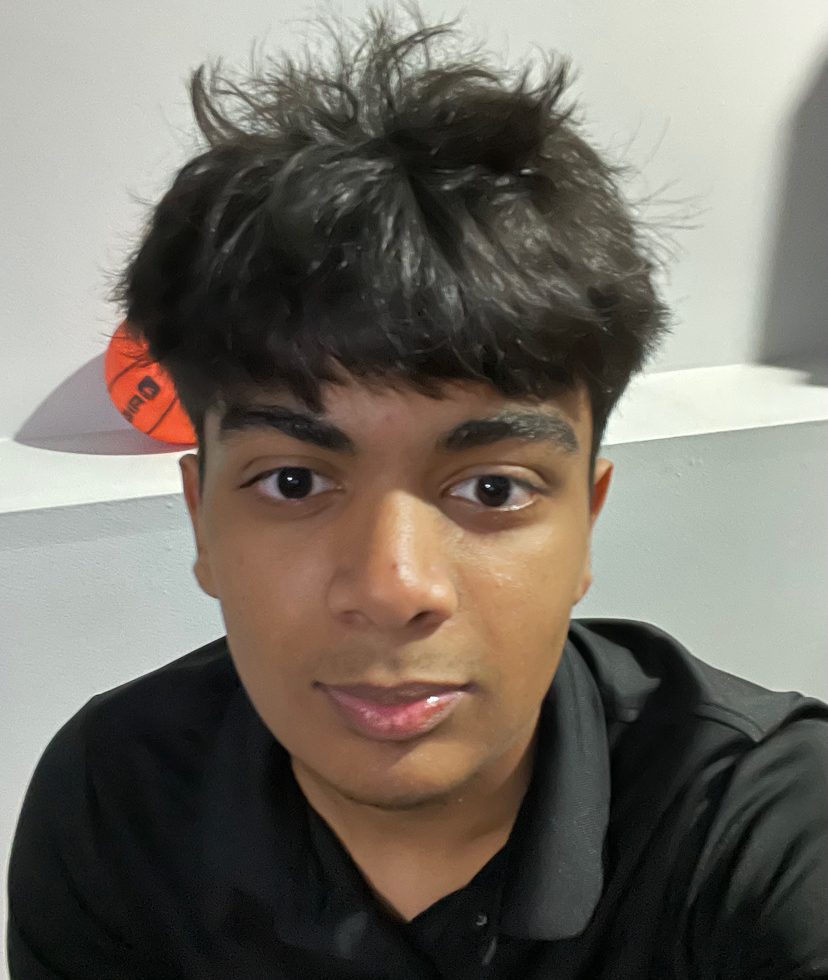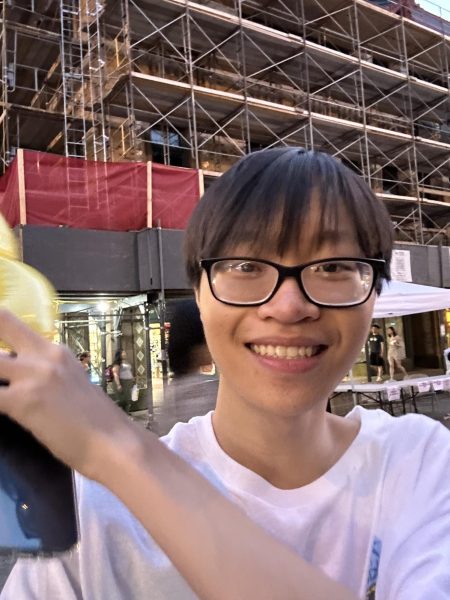What is your name and year in school? My name is Andrei Nague and I’m a senior.
How did you get introduced to the violin and find your passion for it? Through my elementary school’s Into the Strings program run by Mrs. Heath, I was in fourth grade. I found that being able to work towards a goal to surpass my current skill set to be very satisfying. As long as I can remember, I’ve always been fascinated with music, when I was younger I would make DIY drum sets and jam out with wooden spears; I also had a toy guitar but that’s for another story.
If you were to restart from the beginning what is one thing you would change?
I would find a way to get formal training: tutor asap, with my current violin teacher starting at an early age.
How long has it been since you picked up the violin? Why the violin?
Barely reaching my third and a half year, I was initially inspired and in awe watching a soloist I saw on an elementary trip when I was in third grade.
Tips for advanced and beginner class musicians? Practicing your scales play a huge part in learning music; for string players specifically, building versatility on your instrument and being able to refine your ear. While playing you can detect shaky intonation which is imperative.
What do you keep in mind when playing? The top things I listen to are rhythm, intonation and phrasing. Usually it’s hard for me to keep track of it while playing so I usually record myself and listen to practice and perfect.
What is challenging about the violin? Endurance plays a huge part so how did you develop yours? For me it usually has to do with making the decision to practice, then getting back into a session when it didn’t go the way I planned. Most of my endurance had to do with the involvement with the Chicago Musical Pathways initiative; as I had to be accountable for my own tenacity and resolve: 10 hours of practice a week.
How do you feel about orchestra compared to symphonies compared to concertos? I don’t really have much preference for any, as long as it sounds nice I don’t mind the distinction between either one, unless I’m currently playing it.
Violin or Viola? I have more of a fondness for viola players, as that was also what I started off playing in elementary. Since then all of the viola players I’ve met have been amazing people as well as musicians giving me insight.
How do you find the perfect pitch to tune your violin? It mostly has to do with the way the violin sounds. When I play two strings at once; usually I know it’s in tune when this wave-like noise isn’t audible while playing open strings.
What is your biggest regret learning violin? Not starting my training with my teacher at an earlier age. I also did not practice as attentively as I do now.
What is the most valuable lesson you learned playing violin? Resilience and being able to face my own doubts in my playing, performances and learning from them rather than being perpetually demoralized is essential. I only consider it a real failure if I haven’t learned anything from my musical experiences.
How is your ILMEA process? Very challenging and more of a test of endurance and stamina, but the payoff you get after passing the audition while meeting others is invaluable. Meeting extremely skilled players and being able to perform challenging music almost on a whim is an unforgettable journey.


